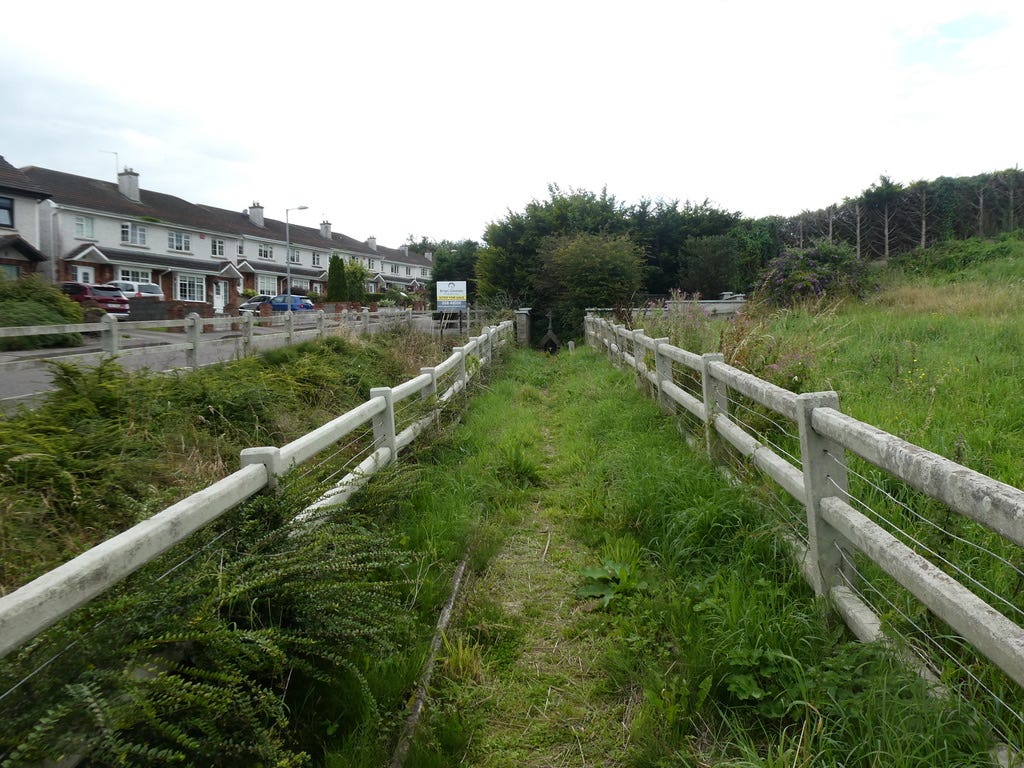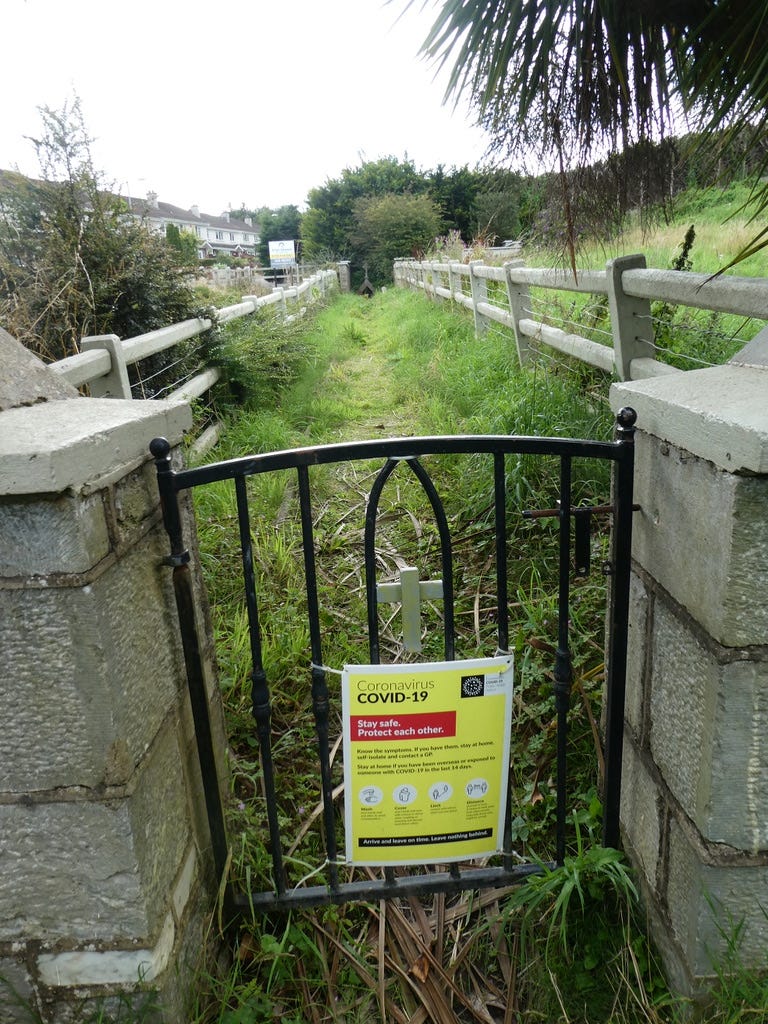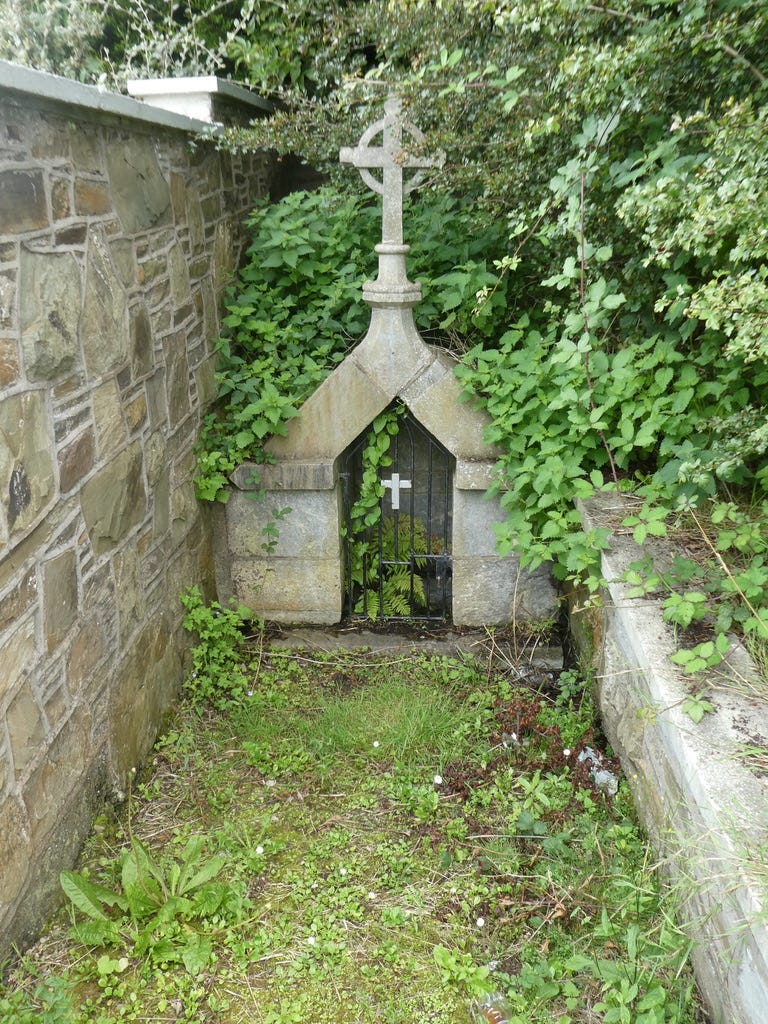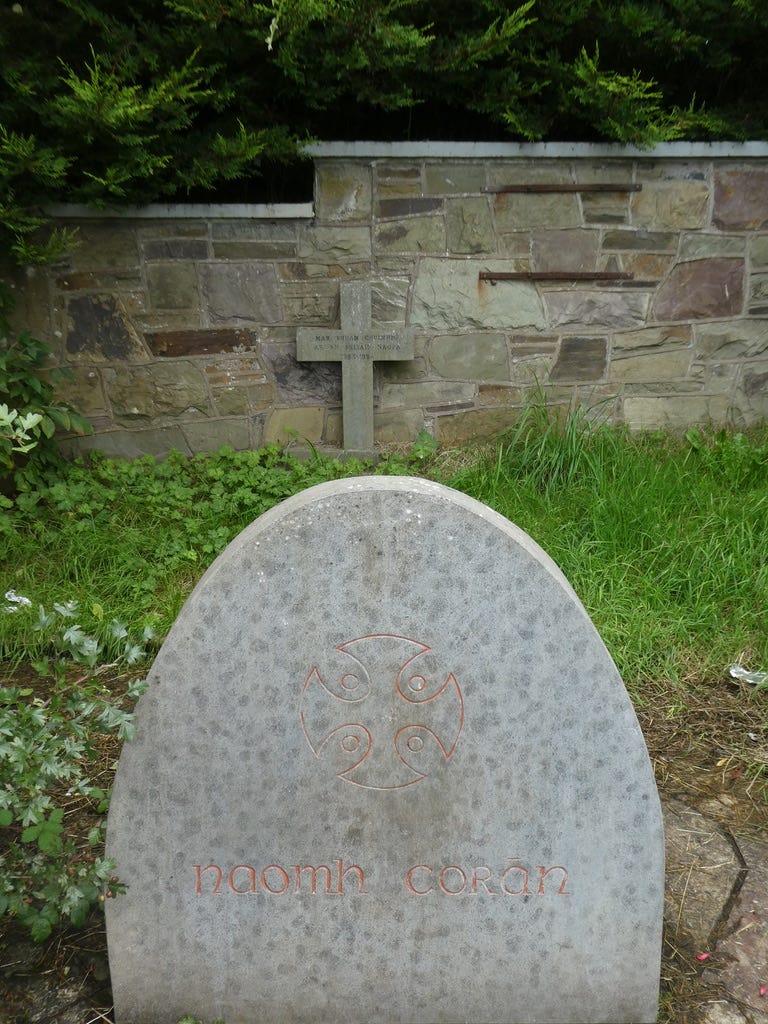St Corán’s Well, Youghal, County Cork
And so, my fellow well-watchers, we reach the halfway mark in our pilgrimage, with the arrival of well number 25. Fittingly perhaps, for the halfway point of a journey, it is a bit underwhelming. But for us it’s also unusual. No wild hilltops this week; no medieval abbeys or lonely woods or tidy villages or clifftops or remote fields. This week, we are visiting a well dedicated to an extremely obscure saint, on the edge of an urban housing estate.
And why not? The saints ought to be accessible to everyone.
Not everyone, unfortunately, seems to be interested in the saints in return. This is a a lonely well, despite being surrounded by cars and houses. Or, more likely, because. If ever a well were unloved and overlooked, it’s this one. Both suburban and suburbanised, it sits alone, quietly watching the world go by. To bend an old proverb out of shape: you can bring the holy water to the house, but you can’t make its inhabitants drink.
Youghal (which is actually pronounced ‘Yawl’) is quite an interesting little town. A seaside resort with a medieval centre, it even has a ‘Walter Raleigh Quarter’, focused around a house once owned by the piratical hero, who lived here for 17 years, during which time he introduced both tobacco and the potato to Ireland, thus changing the course of history (an Ireland without either would be hard to imagine.) There’s also a unique Norman church, which has been in continuous use since the middle ages, and is full of fantastic Elizabethan statuary like this:
St Corán’s well is far away from all this medieval glamour though. Up a hill, behind an indoor bowling alley and around the back of a housing estate, you’ll come across its concrete and breezeblock gateposts, still bearing a reminder that deadly coronaviruses can float through the windy Atlantic air and strike you down at will if you don’t observe social distancing whilst visiting the waters. Oh, and don’t forget to sterilise your hands:
There doesn’t seem much likelihood that this was a hotspot for viral transmission though, because there is no sign that anyone has been here at all. The path to the well, fenced in with concrete and wire, seems untrodden, and the elegant little wellhouse is surrounded and nearly smothered by nettles, dandelions, couch grass and ivy:
There is no signpost or guide here to tell you anything about this well, or its saint. No pattern day noted, no rag tree, no offerings. Only the saint’s name, carved onto a fairly recent stone, erected near the wellhouse. Research into St Corán reveals very little. Like his well, his story is overgrown and half-forgotten. But Pádraig Ó Riain’s Dictionary of Irish Saints has an entry on him. He is listed there as Cuarán Sapiens - ‘Corán the wise.’ Cuarán is a very unusual name: perhaps it’s a variation on the better-known Ciarán. Anyway, our Cuarán, or Corán, apparently came from the same local clan as St Declan, who we met recently in Ardmore, and was a seventh-century monk famed for his scholarship, hence the nickname. He seems to have been known across Ireland and further afield, in Britain and even on the continent.
He is not much known now, though. As for his well: symbolically, its waters are made inaccessible by a locked gate. Judging by the spiderwebs on the padlock, it’s been locked for a while:
It’s almost as if modern Ireland has forgotten its saints. It’s true that in this country - the island of saints and scholars, as it was known in Corán’s day - there are a lot of saints to forget. At least three thousand, by some accounts, though the real number will never be known. Still, when you have a heritage like this, and when it is sown so intimately into your land, you had better not let it go. There’s fun to be had at the beach and the bowling alley, but there will come a time in your life when you long for the still healing waters, whether you know it or not. These are the waters, and this is the land, that formed you. Forget them at your peril. Pray to St Corán that his well might remain for those few who find themselves in need of it.











As an American awash in the emptiness of our culture I so appreciate these Sunday morning escapes
Thank goodness we're only halfway, they've become an integral part of my Sunday morning. I get up before 7 and do a meandering 6 mile circuit of town and countryside, punctuated about a third of the way round by a simple spoken service of Holy Communion in a wonderful old church.
Then home to breakfast and a Well. Thoroughly nourishing on all levels!